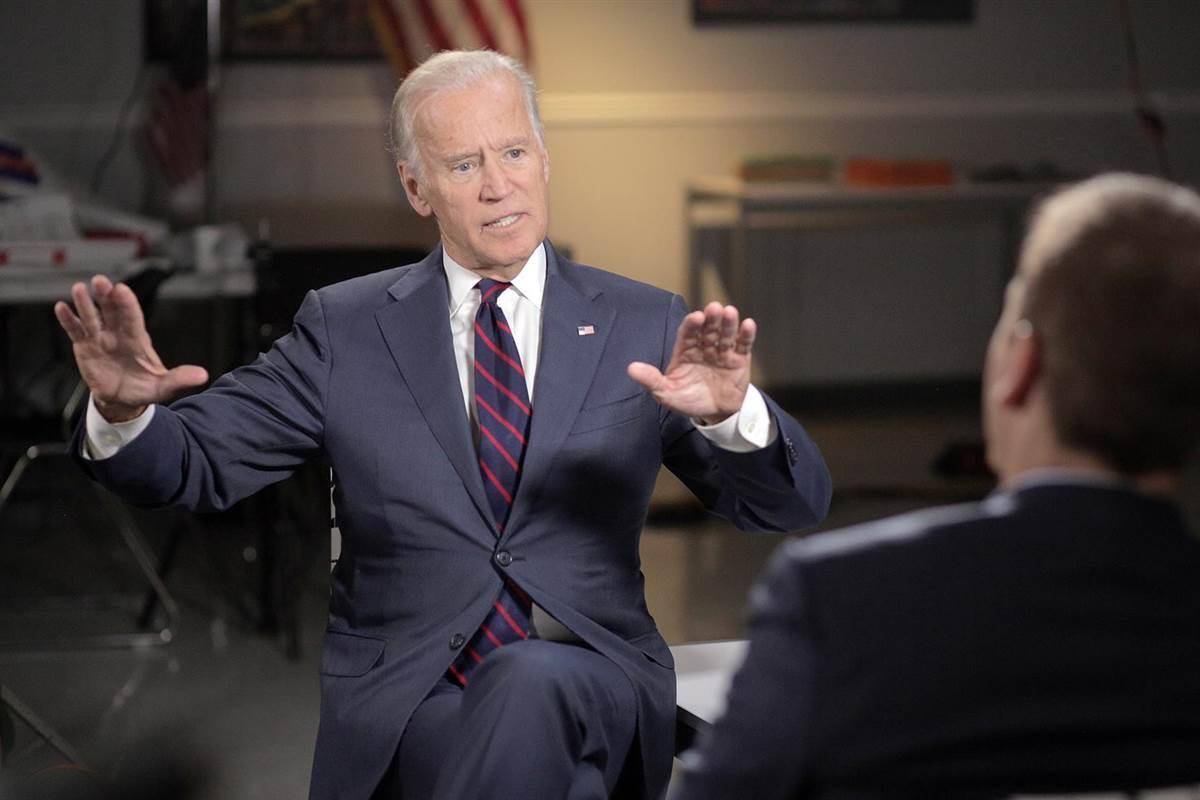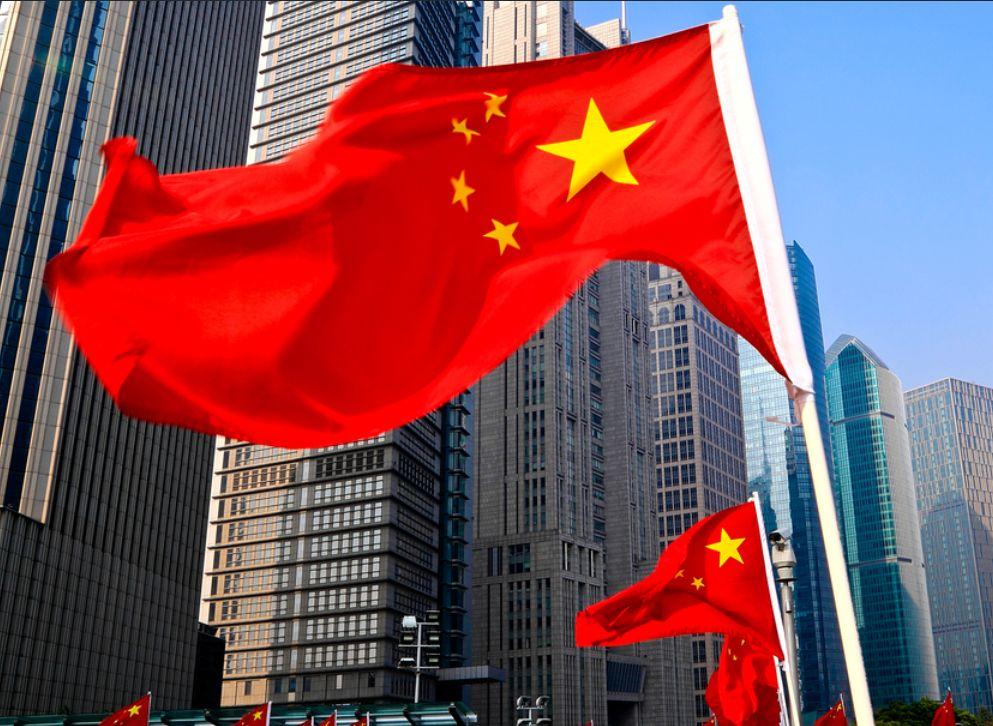Biden administration's foreign policy Between incoherence and realism
Time magazine has published an interview with US President Joe Biden on world politics. It turned out to be scandalous in several respects at once. Biden, for example, declared his intention to prevent European countries from moving away from the Euro-Atlantic security model based on the US presence in Europe. But can he achieve such ambitious goals, given Biden's own notable weakness and his hopeless preoccupation with rather American issues?
The interview does not mention Azerbaijan, but one can draw a number of conclusions about the opportunities for the country and the region. In addition, the US president has sent two positive messages to Baku in recent days. It should be emphasized that this is not some kind of mercy granted to Azerbaijan. This is a recognition of the new reality of the South Caucasus, which is no longer created by superpowers, but by the countries and peoples of the region.
The Washington fall of the Patriarch
The American president decided to talk to Time magazine at length primarily as part of the unfolding election campaign. It turned out so-so. On the one hand, Biden did discuss with journalists the key topical issues of international politics.
On the other hand, he didn't just say questionable things. He spoke so confusingly, sometimes incoherently, repeating some words (sometimes four or five times) or saying them unintelligibly that in some places this conversation looks like an anti-Biden provocation. Fearing accusations of distorting the president's words, Time put out an almost unedited version of the interview. Because otherwise many people wouldn't believe such a thing. However, the other day even the Wall Street Journal wrote about Biden's “cognitive decline”. Meanwhile, this newspaper has always been known for the best relations with the Biden administration among all American media.

Perhaps, in the bowels of the Democratic Party, to which Biden belongs, a plan similar to the project of Yeltsin's “re-election” in 1996 is maturing. Then, too, a slightly alive and unpopular president was dragged through the elections in order to prevent the Communist opposition from coming to power and to win a couple of years for a staged transfer of power with a deliberate disruption of the electoral schedule (in order to prevent the Primakov opposition from coming to power). And we are not exaggerating about the parallels and the fact that the US Democrats may be up to something like this.
The fact is that in the Yeltsin-96 project, the West did not simply support Yeltsin in deceiving voters and stealing votes. American specialists in manipulating election campaigns were specifically assigned to help Boris Nikolayevich. And it was the US Democratic Party that made the main efforts, so there is reason to believe that similar methods can be used now to neutralize the opposition led by Trump.
Nothing personal, just consensus
However, Biden's condition makes his statements even more valuable and representative. It sounds paradoxical, but if we take this into account, it turns out that in the case of his statements we are dealing with the presentation of a position in which there is a minimum of individuality! He simply voices from prepared cards the Washington establishment's carefully calibrated vision of the US role in global politics.
At the very beginning of the interview, Biden was asked whether he thought that, against the backdrop of the collapse of US policy in Afghanistan, followed by serious problems in Ukraine, Israel, and around China, it was time to question the ability of the US to continue to play the role of a superpower.
Biden firmly responded, saying, “Yes we plan to do even better than that. We are a global power"! As for Afghanistan, it is the predecessors' fault. Such bravado does not look very convincing in the context of recent events.
The fact is that one can play the role of a global superpower only by controlling the approaches to one's own borders. Otherwise, there will not be enough time for world politics - which, in fact, is already evident from the way Biden has to abandon any world issues for the sake of settling the growing problems on the Mexican border! Meanwhile, both refugees and drug cartels from a Latin America destabilized and robbed by the West are just the beginning.
It became known about two joint exercises of the Cuban and Russian navies in the summer and fall, as well as the Russian fleet's call to Venezuela. From the shores of Cuba, as it is known, it is a stone's throw to Florida. Washington in response could only squeeze out of itself that it sees nothing important in these exercises. So what if the Russian navy will spend almost six months off the coast of the United States. True, this has never happened before...
The Biden administration is overwhelmed with problems at the borders and fighting the opposition. This was also evident in this week's news. The US State Department firmly disassociated itself from Macron's insinuations about the possible dispatch of advisers to Ukraine, emphasizing that neither the US nor NATO is even thinking about such a thing. And Washington distanced itself from an anti-Iran resolution at the IAEA put forward by France, Germany and Britain.
And this despite the importance of this resolution for Israel, for whose interests Biden is constantly publicly advocating! Journalists, by the way, asked Biden whether the US leadership is already preparing to live with nuclear Iran and DPRK - to which they received the answer that nothing much has changed - five years ago the problems were the same. However, the White House said that yes, in order to neutralize the growing total nuclear arsenal of its adversaries (Russia, China, North Korea and Iran), the United States is considering whether to build up its own nuclear arsenal.
Needless to say, such an obvious preoccupation of Washington with “burning” issues at home will have far-reaching consequences for alliances concluded by the US around the world? In his interview, Biden focused separately on those alliances. And in this case, he began by accusing Trump of being willing to sever alliance ties: Biden keeps coming back to the subject of Trump, which he clearly cares more about than the rest of the world.
But what is curious is that his remarks show a tendency to move away from forcing partners to adopt Western values. American alliances, according to the US leader, include both “value” and “practical” alliances. The main one, of course, he considers NATO. But along with NATO, he also dwelt on his success in developing alliance relations with illiberal Saudi Arabia, and this time he defended that alliance without a single reservation! Washington has fewer and fewer opportunities to instruct other countries in the context of China's activation as a global alternative to America - so the US leadership is praising the Saudi side, realizing that here it has to make a good face in a bad game, given Riyadh's rapprochement with Beijing.
Caricatures and the real world
Especially curious are the frankly caricatured views of the US leadership even about its key adversaries - the Russian Federation and China. Biden declares about Russia, among other things, that Putin's policy is aimed at restoring the USSR, and that the Russian army has been decimated. By the way, some American congressmen seriously tell even on BBC about the Soviet (!) and communist (!) invasion of Ukraine, and experts from post-Soviet countries serving the interests of the American elite talk about the KGB in modern Russia! Where do Biden and others see signs of the restoration of the Marxist state of the dictatorship of the proletariat by Orthodox Putin, whom the West accuses of the opposite - the cultivation of oligarch-capitalists? And if the Russian army has been destroyed, why is there no general mobilization, and who is advancing near Kharkov?
Biden's stories about China are no better. He mocks talk of China's rise - yes there is “a population there that is much older than the vast majority of young people [probably referring to the younger population of European countries] in Europe and too old to work. And they are xenophobic. Where did this [the view of a stronger PRC] come from? Where is it [China] going to grow? You have an economy on the brink there [in China]. What is this idea that their economy is booming?" Actually, any country in the collective West fits this description better than China - the latter has a much less acute aging population and a better economy.

The interview comes amid news this week that China is increasing its influence in neighboring regions, particularly through legitimizing Afghanistan's Taliban government, unblocking its longtime North Korean ally, moving closer to Iran and Saudi Arabia, etc. And we noted above that calm in neighboring regions is critical to a country's ability to play a role in global politics. Further, the “economy on the brink” in the Chinese case means that the West no longer knows how to protect itself from fairly cheap and high-quality Chinese goods, and therefore requires the Chinese government to limit production in a command-and-control manner, and resorts to non-economic measures itself - catching the management of unwanted firms (e.g. Huawei), quietly banning the sale of Chinese products or imposing wild duties on Chinese goods (Biden himself announced new such measures in an interview).
And we are not talking about cheap junk: Chinese technological achievements have recently received another confirmation in the form of a successful flight to the back side of the Moon.
In general, caricatured perceptions of the world will definitely not help anyone to participate effectively in world politics. But there is another point worth noting here: if the Americans have such ideas about their biggest adversaries, it is not surprising that their ideas about more distant topics, for example, concerning the South Caucasus, may not be quite correct either. There is no doubt that the Dashnaks and other revanchists can put into their heads completely medieval ideas about Azerbaijanis and Turks.
Biden and Putin agree in their assessments
In the interview itself, Biden does not talk about the South Caucasus. But last week he sent a congratulatory message on Azerbaijan's Independence Day, in which he separately emphasized US “support for the territorial integrity” of the country, and also welcomed the current steps of Baku and Yerevan towards peace. A representative of the US State Department read out Biden's message to the participants of the Baku Energy Week. In his message, the US leader again supported efforts to conclude a peace treaty between Azerbaijan and Armenia, which would transform the South Caucasus and “fundamentally change Azerbaijan's role in the region.”
One should not be overly fascinated by such messages and see in them only a confirmation of the failure of the attempts of Armenian revanchists to draw the US into a confrontation with Azerbaijan. They are, of course, such confirmation, but another point is much more important. They are not diplomatic advances and curtsies to Baku, but are the most usual Realpolitik comilfo.

To put it simply, the American leadership - not so much Biden, but the American foreign policy establishment whose views he voices - gradually and inconsistently, but accepts the reality that has already been created. Created by the efforts of the people, state and army of Azerbaijan. Baku has achieved restructuring of the region, its reformatting with limiting the ability of world powers to interfere in the events in the South Caucasus. Azerbaijan itself is gradually becoming a key source of energy carriers or an indispensable transit route for energy and other flows between the most important centers of the world economy.
Washington's attention is a reaction to Baku's success in strengthening its sovereignty and independently addressing the region's problems in cooperation with its neighbors and without superpowers. It is noteworthy that the opposite pole of world politics - Russia - has also reacted to this new reality. President Putin, in a conversation with the heads of world news agencies, dwelling on relations with individual countries, paid special attention to Azerbaijan.
"Our relations are developing successfully, reliably, very pragmatically. We feel the attitude of the Azerbaijani leadership to building interstate relations on the basis of mutual interest and, I would say, to a certain extent, on sympathy for each other".
Putin spoke separately about the strategic project of the North-South transport corridor, the realization of which is impossible without Azerbaijan: “When cargoes from here, where we are, from the port of St. Petersburg, will go through the entire European part to Azerbaijan, then to Iran and then to the Persian Gulf coast. According to him, as a result, goods can be carried “almost ten days faster than through the Suez Canal”, which has already interested sovereign Arab funds. All this has also become possible thanks to the strengthening of the Azerbaijani state.
To summarize. Due to the weakening of US foreign policy and the almost inevitable upcoming domestic political crises in the United States with far-reaching, grave consequences for the global hegemon, the international situation is changing radically. On the one hand, new opportunities are emerging for “regionalization” of processes in the South Caucasus and their separation from the destructive influences of world politics.
On the other hand, new risks arise, as the weakening of the United States within the structures of the “collective West” entails the activation of a number of Western players prone to adventurous and ill-considered steps, as exemplified by the French government of Macron. However, strengthening sovereignty and restoring the historical unity of the South Caucasus will allow Azerbaijan to develop successfully in the new circumstances.
The views and opinions expressed by guest columnists in their op-eds may differ from and do not necessarily reflect the views of the editorial staff.








